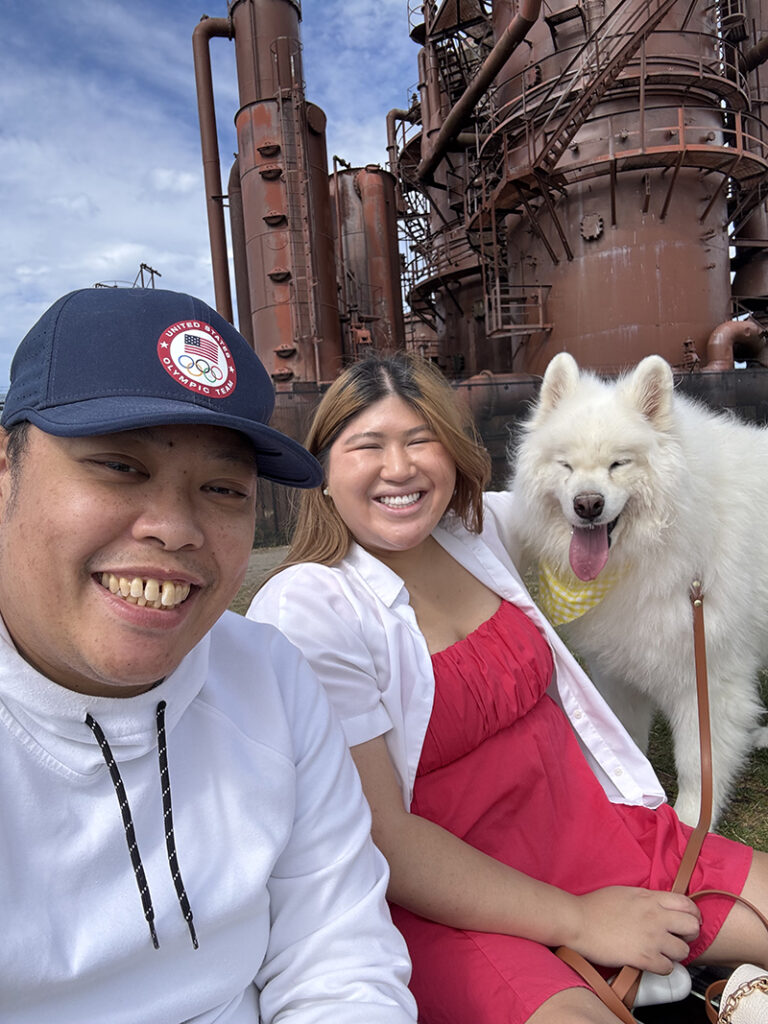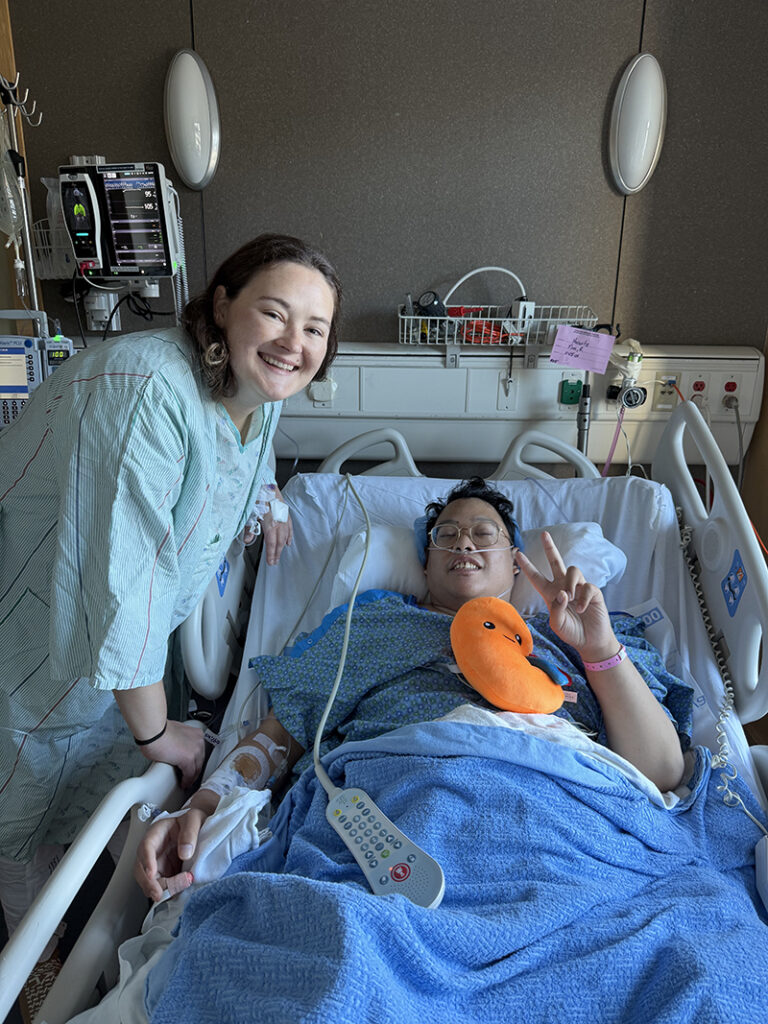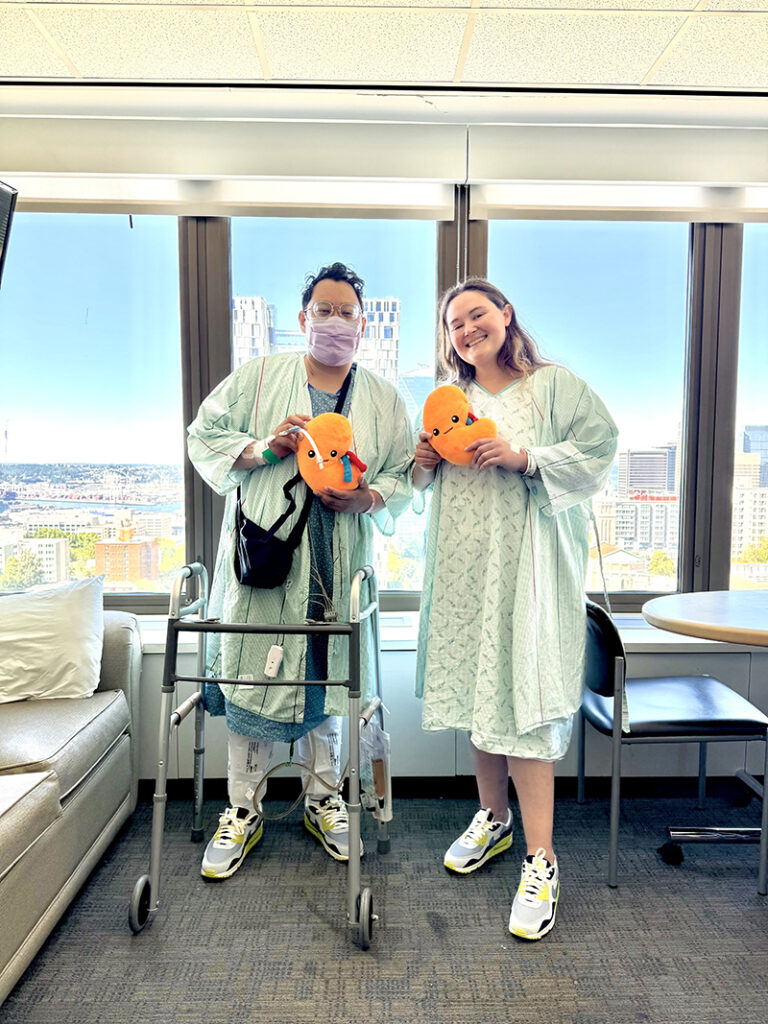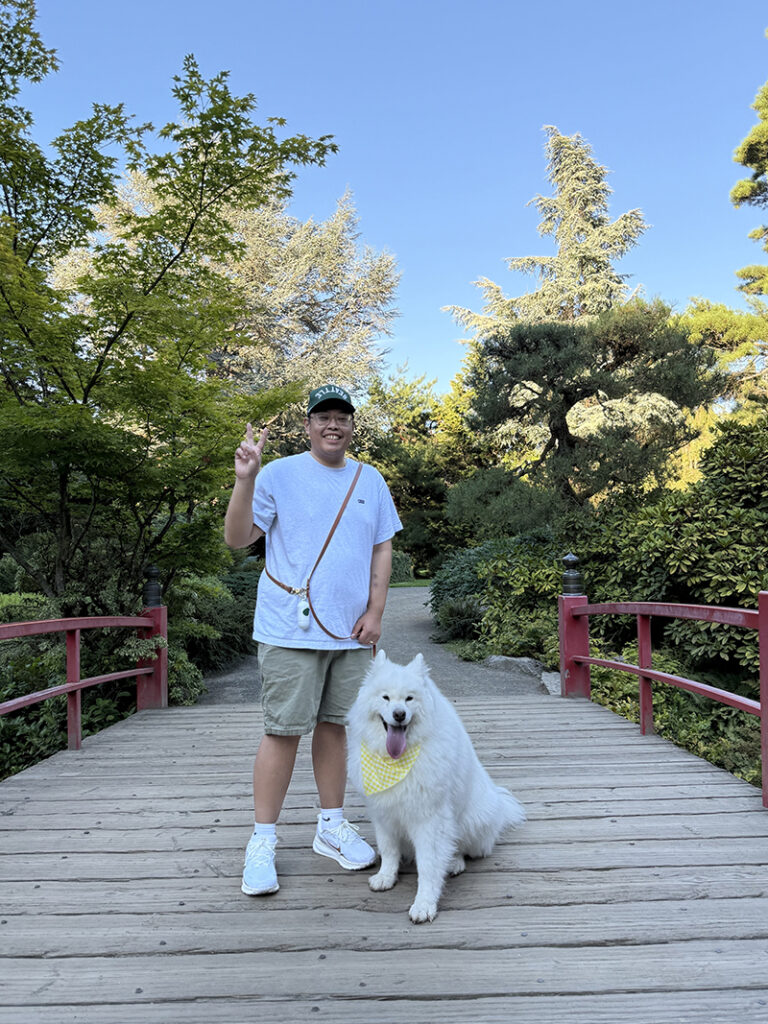By Nina Huang
NORTHWEST ASIAN WEEKLY
 Randy Yim is getting a second chance at life and writing a new chapter! We met Yim last October, and documented his fight for a kidney and the critical role of minority donors in saving lives. Less than a year later, in the same hospital where he was born, Yim received a gift that changed his life forever: a new kidney. His living kidney donor, Sammy Savage, wasn’t a stranger or someone found through the national registry—she was a family friend who stepped forward in an extraordinary act of generosity.
Randy Yim is getting a second chance at life and writing a new chapter! We met Yim last October, and documented his fight for a kidney and the critical role of minority donors in saving lives. Less than a year later, in the same hospital where he was born, Yim received a gift that changed his life forever: a new kidney. His living kidney donor, Sammy Savage, wasn’t a stranger or someone found through the national registry—she was a family friend who stepped forward in an extraordinary act of generosity.
His wife and Savage’s friendship stretches back to their college days. The two women, along with the donor’s twin sister, have remained close for years which made the decision to donate even more meaningful.
A life-changing gift
Yim is a lucky man.
According to the Swedish Medical Center’s program page, there are approximately 1,400 people in Washington state currently waiting for a kidney transplant.
“I’m super fortunate that my donor is a friend of my wife’s,” he shared. “When a few people expressed interest earlier this year, she was the first to fill out the questionnaire. That process took months—six to seven months of medical and educational steps—but everything checked out by June. By late July, the surgery was scheduled.”
According to Donate Life Northwest, a total of 27,759 kidney transplants were performed in 2024 in the United States. Of those transplants, only 6,418 (23%) of them were from living donors.
Transplant day
The transplant took place at Swedish Medical Center, and the timing felt deeply symbolic.

After getting labs and bloodwork done, Yim slept for about two hours and then showered with a special soap to disinfect his body.
Yim had a hard time falling asleep because of the rollercoaster of emotions—from thinking the worst-case scenario to experiencing tears of joy while getting transferred to the operating room. By the time he was on the operating table, he knew he was being given a second chance at life.
Yim, his wife, Savage, and some friends had plans to see the Backstreet Boys perform at the Sphere in Las Vegas to celebrate his wife’s birthday, but surgery took precedence.
“It all sprung up on us at the last minute, but I rather go through surgery first. We could celebrate another time,” he said.
After the operation, he was struck by the contrast between his experience and his donor’s.
“When she walked into my room a few hours after surgery, I couldn’t even move, but she was bouncing off the walls. She got discharged the next day and has recovered really well.”

On July 31, Yim was discharged—just in time to celebrate his wedding anniversary that evening.
At home, they enjoyed celebratory pasta takeout from a new spot in Tukwila. For Yim, it was nice to enjoy a meal he normally couldn’t enjoy pre-surgery.
New freedoms, new challenges
Before the transplant, dialysis dominated his life. Three times a week, his body endured strict limits—including a 32-ounce liquid restriction. Now, he marvels at the simple joy of water.
“I need to drink two to three liters a day to keep the kidney functioning. It feels incredible not to be restricted anymore,” Yim said.
But recovery hasn’t been without its challenges.
One of the biggest surprises after getting discharged was that Yim had a fanny pack with anesthesia attached to him. The anesthetics went into a tube next to his kidney and he had to learn how to remove it himself once the medicine ran out. He was terrified to do it even though it was effortless and painless. His wife helped him, but he didn’t expect to have to carry around a fanny pack filled with medicine the first two days after surgery.
“The medication was also a learning curve. I have 12 prescribed medications—about 40 pills, as well as insulin and other liquid supplements, and I have to take them all throughout the day.
That was a big change. Obviously I wouldn’t trade it for dialysis, but it was a change,” he said.
Yim also has to manage a strict post-transplant diet. Raw foods, deli meats, and sushi are off the table for now, and his potassium and phosphorus levels must be carefully monitored. But the trade-off is worth it.
The most noticeable difference is his energy.
“Before surgery, I couldn’t make it through Costco without sitting down from fatigue. A few weeks later, I walked three miles at Seward Park without stopping. That freedom of energy and time is life-changing,” Yim said.
Emotional highs and support systems
The transplant also brought emotional revelations.
“As a patient, you become so independent during dialysis. But after surgery, you have to rely on people—and that’s okay. Friends sent gift cards and meals, which helped us get through the first weeks. My wife has been my caregiver, and I couldn’t have done it without her,” he said.
Yim wants others waiting for a transplant to know that every journey is unique.
“There’s a misconception that it’s the same for everyone. But everybody, every match is different. The most important thing is knowing you have support and being willing to accept it,” he said.
Looking ahead
He plans to remain an advocate for kidney disease awareness through his social media platform, “Kicks and Dialysis,” where he has documented his journey. He also looks forward to celebrating with his donor and her family at the Northwest Kidney Centers’ annual Discovery Gala in October.

“I can’t wait to swing a golf club again, to travel, to get back to fitness. Mostly, I’m looking forward to a longer life with my wife,” he said.
Nina can be reached at newstips@nwasianweekly.com.



